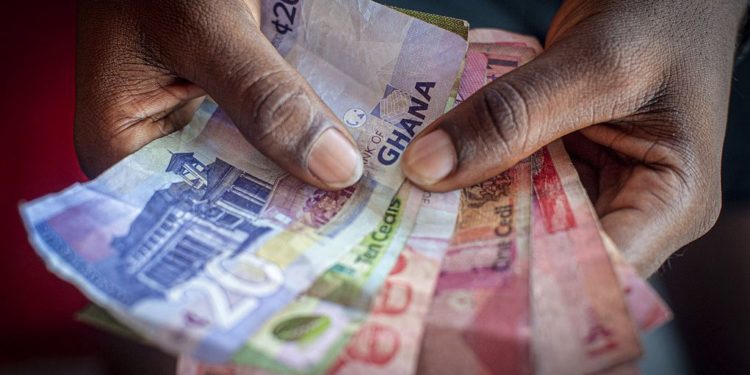Ghana’s central bank increased its benchmark interest rate by its biggest margin to tame inflation and stabilize the nation’s tumbling exchange rate at a special monetary policy meeting.
Policymakers raised the rate by 300 basis points to 22%, the Bank of Ghana said in an emailed statement late Wednesday. That’s the biggest increase since 2002 when the central bank was granted the independence to set interest rates, and adds to 550 basis points of increases since November.
The monetary policy committee also decided to hike the primary reserve requirement of banks to 15% from 12%, to be implemented gradually from Sept. 1 to Nov. 1.
Meanwhile, according to the statement, the central bank is planning to buy foreign exchange from mining and oil companies to beef up its reserves. These purchases will be made on “the voluntary repatriation of export proceeds,” the regulator said.
Ghana’s MPC, which usually convenes every two months, held the emergency meeting to address “strong inflationary pressures,” the Bank of Ghana said in the statement. The foreign exchange market is also “showing elevated demand pressures,” it said.
The central bank held its key rate last month after Governor Ernest Addison said there were signs that rampant inflation may be levelling off.
However, regulators announced Monday that water and electricity tariffs will rise 22% and 27%, respectively, from next month. In July, producer prices jumped 41.2%, the fastest pace in eight years, adding to a deteriorating inflation outlook.
Rising Inflation in Ghana
Annual inflation, currently 31.7%, is at its highest level since November 2003, exceeding the top of the central bank’s target band of 6% to 10% for 11 months. Rising costs have been fueled by surging international commodity prices and a sharp depreciation in the cedi, which has lost 36.5% of its value against the dollar this year.
Ghana turned to the International Monetary Fund in July for a credit facility after being locked out of global debt markets in a bid to help anchor price stability and fund its economic program.
“While a higher policy rate alone may not be sufficient to stabilize the currency in the very near term, it will at least provide reassurance on the seriousness of Ghana’s negotiations with the IMF,” Razia Khan, who heads research for Africa and the Middle East at Standard Chartered Bank in London, said in an email.
I




